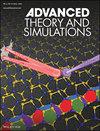A Rule‐Based Server Activation Strategy for Dynamic Load Balancing and Energy Efficiency in Data Centers
IF 2.9
4区 工程技术
Q1 MULTIDISCIPLINARY SCIENCES
引用次数: 0
Abstract
The energy costs of the information services offered in data centers stand out as one of the most significant expense items. This study proposes an innovative load balance methodology that aims to reduce the energy consumption of load balancing systems serving in data centers through dynamic server management. While traditional load balancing servers have a structure that consumes energy continuously, the proposed methodology offers a system design that activates servers only when needed. This experimentally designed system consists of an administrator server and three application servers. The administrator server analyzes the instantaneous CPU utilization information from the application servers, evaluates the load trends, and activates or deactivates the servers according to the determined threshold values. At this stage, the decision to include or remove application servers from the system is made with a “rule‐based” decision system. In the study, applications are made with four different CPU utilization threshold values, 50%, 60%, 70%, and 80%, and the system's energy consumption is monitored. The findings show that the proposed methodology provides the highest efficiency at the highest threshold and has significant potential in terms of energy efficiency; thus, the proposed methodology can be a promising method for developing energy efficiency strategies in data centers.基于规则的数据中心动态负载平衡和能源效率服务器激活策略
数据中心提供的信息服务的能源成本是最重要的支出项目之一。本研究提出了一种创新的负载平衡方法,旨在通过动态服务器管理减少数据中心中服务的负载平衡系统的能耗。传统的负载平衡服务器具有持续消耗能量的结构,而所提出的方法提供了一种仅在需要时激活服务器的系统设计。本实验设计的系统由一个管理员服务器和三个应用服务器组成。管理员服务器分析应用服务器的瞬时CPU利用率信息,评估负载趋势,并根据阈值对服务器进行激活或停用操作。在此阶段,从系统中包含或删除应用服务器的决策是由“基于规则”的决策系统做出的。在本研究中,应用程序使用了四种不同的CPU利用率阈值(50%、60%、70%和80%),并监控了系统的能耗。研究结果显示,建议的方法在最高的阈值下提供最高的效率,并在能源效率方面具有巨大的潜力;因此,所提出的方法可能是在数据中心开发能源效率策略的一种有前途的方法。
本文章由计算机程序翻译,如有差异,请以英文原文为准。
求助全文
约1分钟内获得全文
求助全文
来源期刊

Advanced Theory and Simulations
Multidisciplinary-Multidisciplinary
CiteScore
5.50
自引率
3.00%
发文量
221
期刊介绍:
Advanced Theory and Simulations is an interdisciplinary, international, English-language journal that publishes high-quality scientific results focusing on the development and application of theoretical methods, modeling and simulation approaches in all natural science and medicine areas, including:
materials, chemistry, condensed matter physics
engineering, energy
life science, biology, medicine
atmospheric/environmental science, climate science
planetary science, astronomy, cosmology
method development, numerical methods, statistics
 求助内容:
求助内容: 应助结果提醒方式:
应助结果提醒方式:


